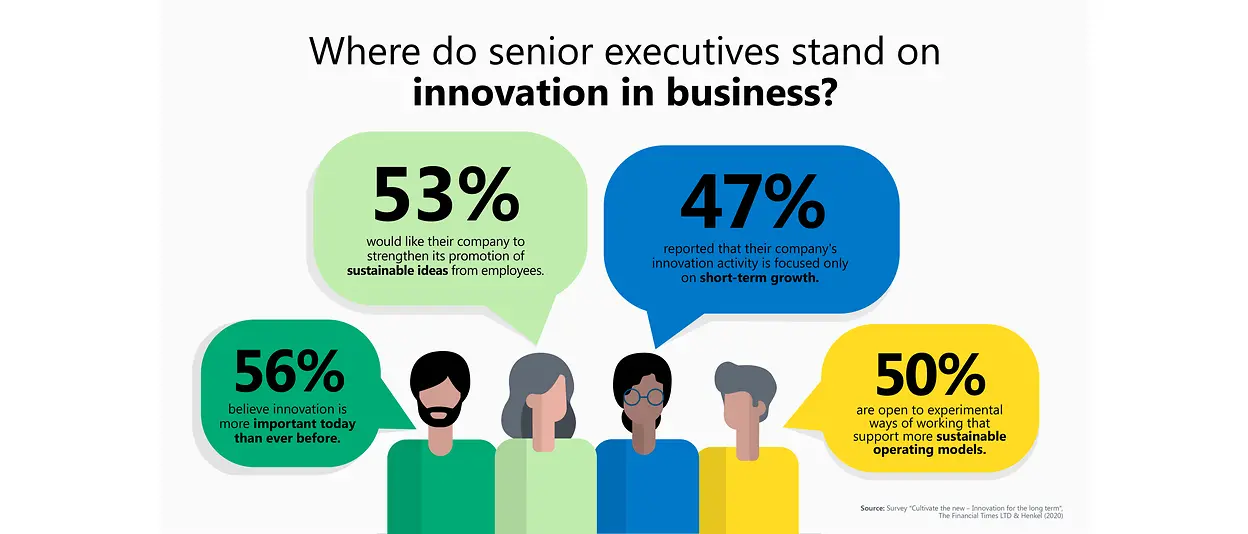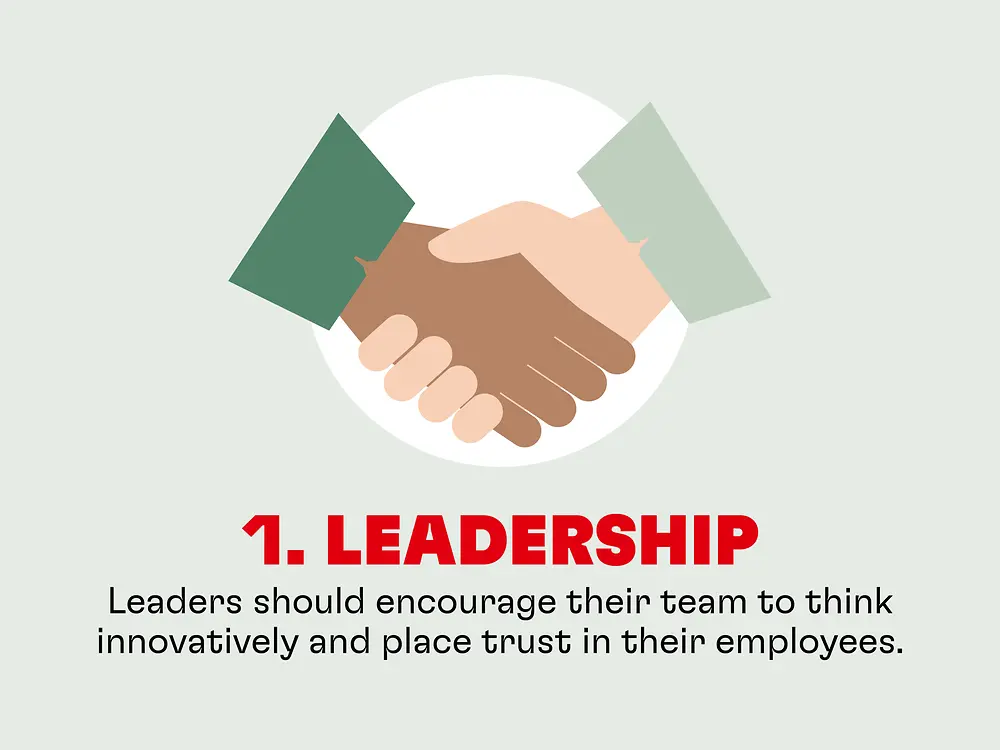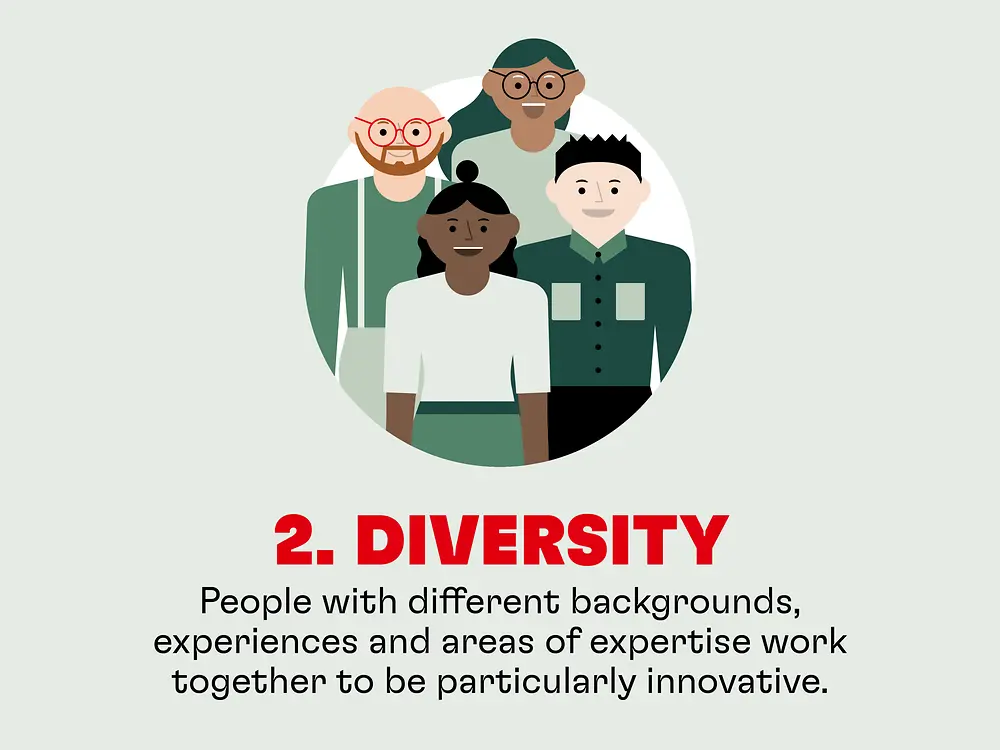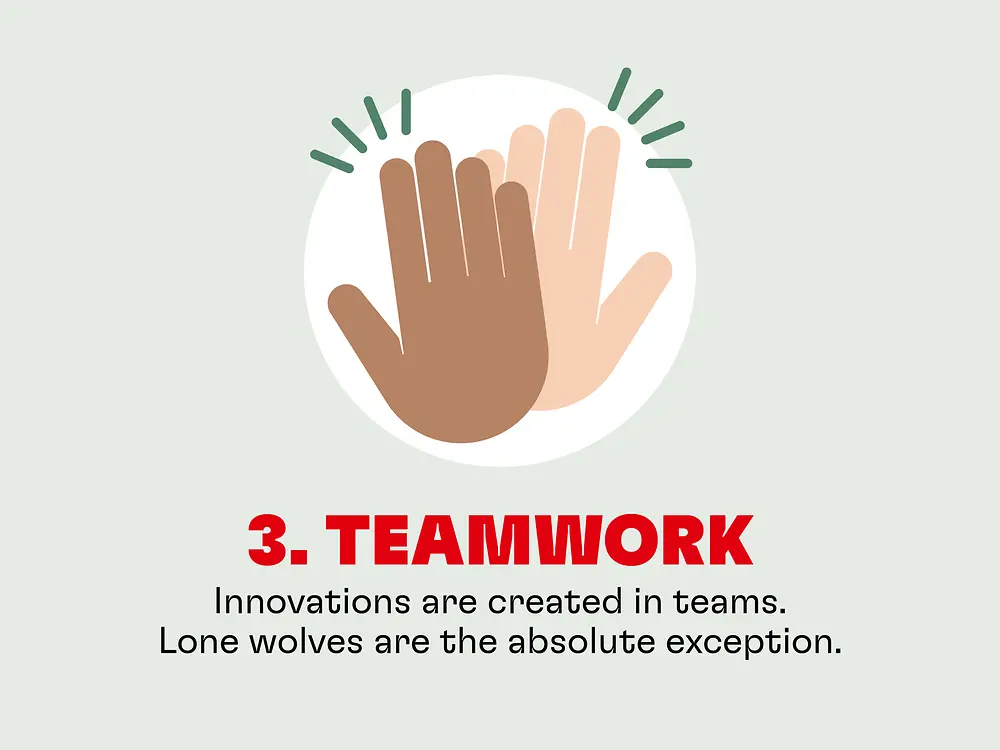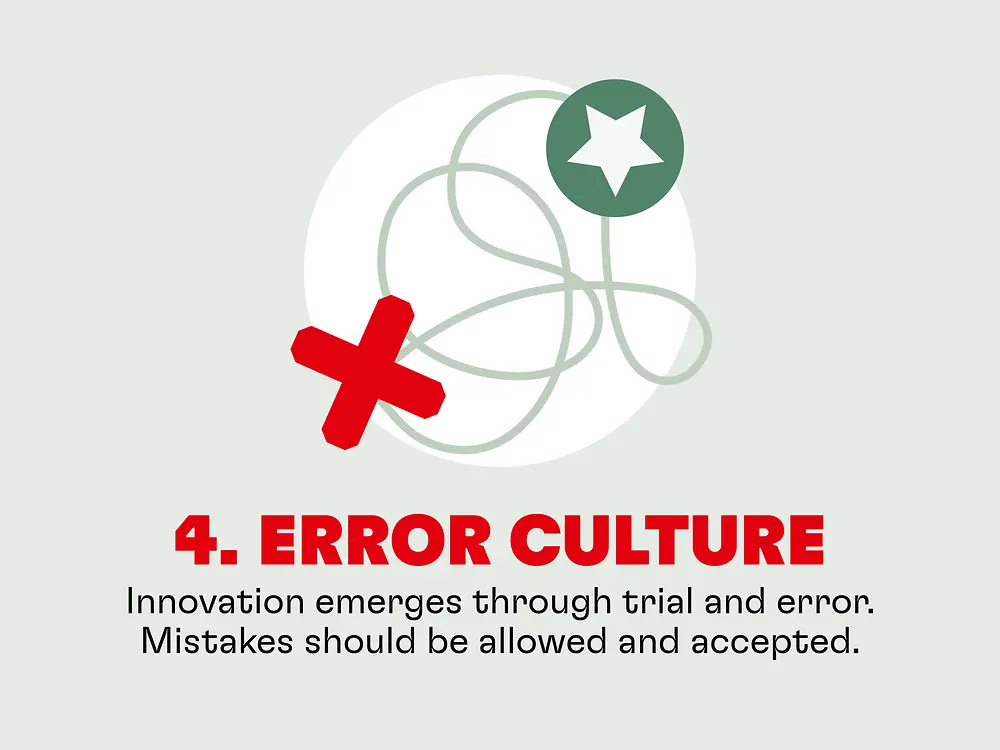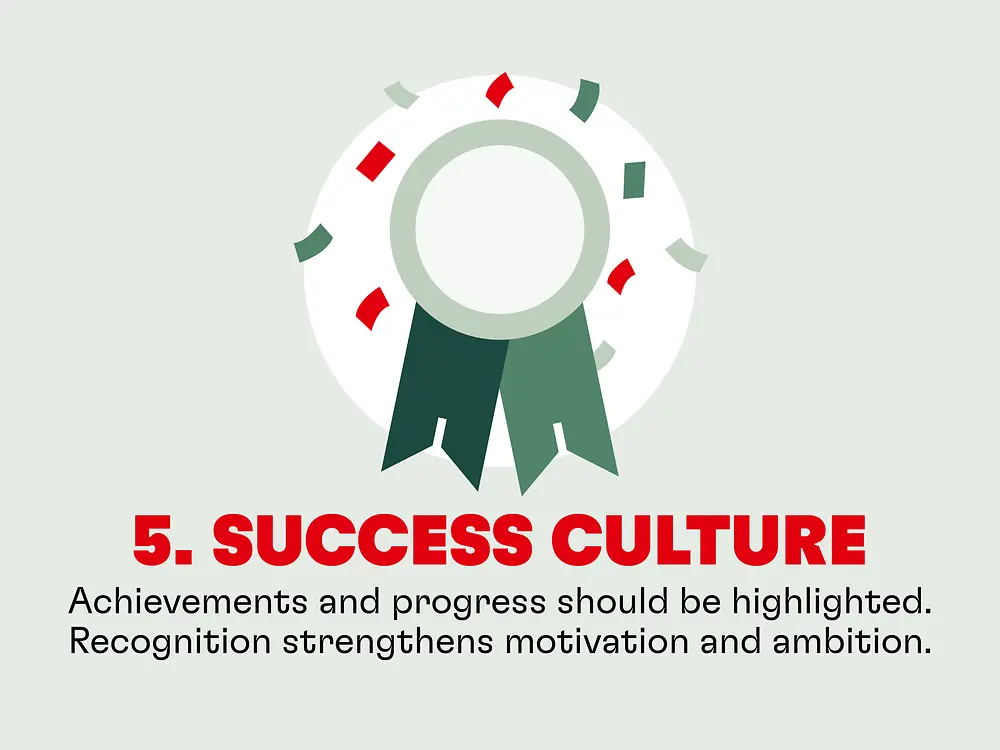The survey “Cultivate the new – Innovation for the long term,” implemented by Henkel and the Financial Times at the end of 2020, shows how important innovation, and therefore a culture of innovation, is. 500 employees in leading positions from 20 different industries around the world were asked how innovation is fostered and how it is integrated within their companies. More than half of the respondents say that innovation is more relevant than ever before. However, many still see a need for further action when it comes to implementing a culture that promotes innovative thinking and action. One key contributing factor here is a company’s corporate culture.
A corporate culture evolves over a long period of time and is shaped by the company’s history and experience. The culture reflects the values that guide all employees in their actions, decisions, and behavior. This also influences the impression the outside world has of the company. Potential values can include customer friendliness, digitalization, sustainability, or innovation. A culture of innovation is often an important part of the corporate culture as it ensures a sustainable competitive advantage and market success. However, in order to establish a culture that promotes innovation within a company, certain conditions must be met. Such a culture needs willingness, ability, and opportunities to innovate. The study shows that, while companies do struggle with these three points, they are aware of what they need to do to establish a culture that fosters innovation. Across all industries and regions, respondents agree that leadership, diversity and a willingness to take risks are the best means to promote innovation.
Source: Survey “Cultivate the new – Innovation for the long term”, The Financial Times LTD & Henkel (2020)
A positive attitude towards failure encourages new ways of thinking
Those who think and act outside the box must plan for setbacks and failures. Maren Jekel, who is responsible for market research in Laundry & Home Care at Henkel, is convinced that “the willingness to fail is an essential aspect of trying things out.” According to her, it is important to maintain a positive error culture in which problems can be addressed openly. This is how you can learn from setbacks and are able to further develop yourself and your ideas. A solid foundation of trust and reassurance from management level that failure does not entail negative consequences also inspire a spirit of innovation. This aspect is also evident in the study: Nearly half of all respondents state that strong leadership is the most important component in nurturing innovation. And when courage and the spirit of innovation bear fruit, these successes need to be appreciated accordingly. Rik Strubel, Chief Marketing Officer at Henkel Beauty Care, argues that progress should be highlighted more: “It’s important to build a culture that celebrates this success.”
Diversity advances innovation
Just as relevant as a positive attitude towards failure and a good leadership style is a diverse team. People who come together from different hierarchies, fields of expertise and cultures develop new ideas more easily than they would in a homogeneous environment. The study confirms this hypothesis: 49 percent of respondents are convinced that innovation is more successful in diverse teams.
It is easier for heterogeneous teams to develop innovative solutions.
Michael Todd, Head of Innovation and New Business Development for Adhesive Technologies at Henkel, also agrees: “It is better to harness the creativity of thousands of people in our organization by giving them that entrepreneurial spirit, than to try to find the one Steve Jobs in that group.”
Motivating managers and a culture that promotes innovation increase employees’ willingness to innovate. But what is also often missing is the ability to innovate. Companies rely on different strategies to build up or further develop relevant skills among their employees. At Henkel, for example, there are training courses on tools and methods for finding ideas, evaluating these ideas and putting them into practice. However, the use of external knowledge from start-ups or business partners is also a key factor. In June 2021, Henkel defined a new Purpose to inspire the innovative spirit, describing what unites all Henkel employees: “Pioneers at heart for the good of generations.”







